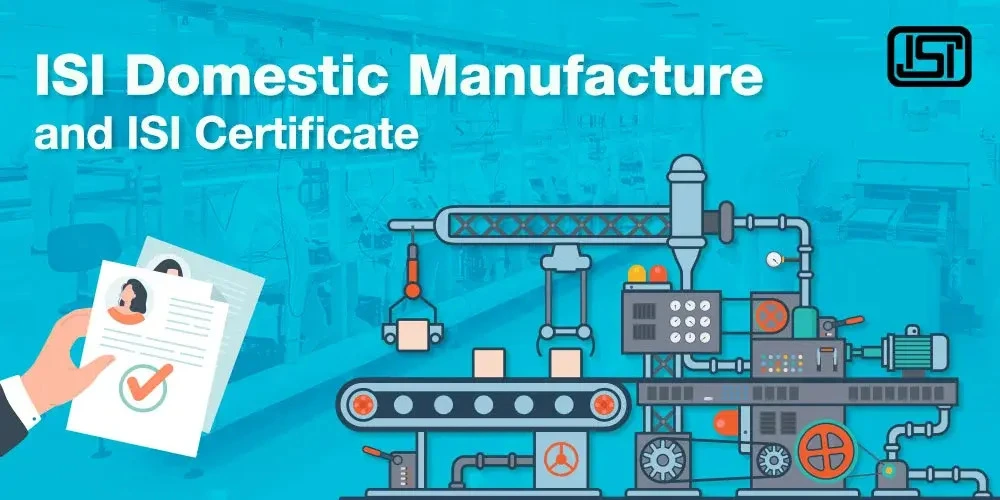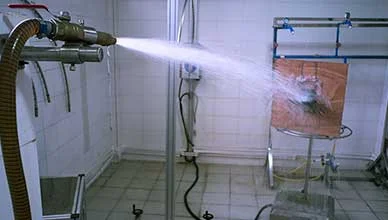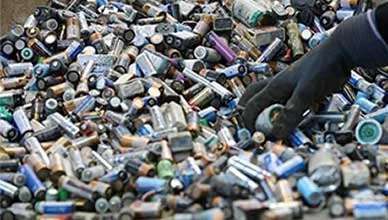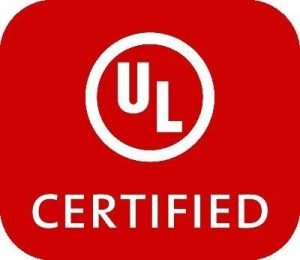EPR for Waste Tyres
What is EPR?EPR stands for "Extended Producer Responsibilities." It's a responsibility given to tyre manufacturers to make sure waste tyres are managed in a way that's good for the environment and people's health. The goal is to keep the environment safe from any bad effects that waste tyres might cause.
EPR stands for Extended Producer's Responsibility. EPR Certificate is mandatory for Indian Manufacturer / Importer of products for E-waste management. EPR Authorization process is given by the Central Pollution Control Board (CPCB) under MoEFCC, Government of India.
EPR is a rule that makes companies responsible for the products they make or sell, especially when it comes to waste and pollution. To follow this rule, companies need to use an online system, as per the Hazardous and other Waste (M & TM) Amendment Rules, 2022. This online system is called the Waste Tyre Management System Portal. It's where companies involved in making, recycling, or selling tires have to register. This part of the system is just for companies to report what they're doing to meet their EPR obligations. In these rules, a 'Producer' is anyone who:
- Makes and sells new tyres in the country.
- Sells new tyres made by other companies under their own brand.
- Sells imported new tyres.
- Imports vehicles with new tyres.
- Automobile makers who import new tyres for their vehicles sold in the country.
- Imports waste tyres.
According to EPR rules, manufacturers are responsible for how they handle tyres that are no longer needed.EPR practices consider the environment, money, and society. They encourage companies to prevent tyre waste in the first place, which is better for the environment. They also encourage making products that are friendly to the environment and match recycling and management goals set by the public.
The rules about how to deal with dangerous waste and other types of waste were changed in 2022, starting on July 21st. These changes were made by the Ministry of Environment, Forestry, and Climate Change. They added new rules, known as "Extended Producers Responsibilities (EPR) for Waste Tyres," that explain how to use and take care of old tyres. In order to use waste tyres one need to get EPR registration for Tyre done.
EPR Registration Type
Responsibilities of Tire Producers
A "tyre producer" is anyone who makes and sells new tyres, either in India or abroad, through other producers or suppliers, or who brings in waste tyres to use in new vehicles sold in India. Once they have an EPR certificate Tyer from a registered recycler and submit it online by filing a quarterly return, rule 7 of the Amendment Rules says that producers must fulfill their EPR duties.
Responsibilities of Tire Recyclers
A recycler is someone who turns old tyres into things that are good for the environment, like recycled carbon black, crumb rubber, crumb rubber modified bitumen, or pyrolysis oil/char. This stuff can be used to make new tyres. However, pyrolysis oil or char is used as fuel, not to make new tires. Under rule 8 of the amendment act, the producers must also tell the CPCB how many old tyres they used and how much new stuff they made from them each month.
EPR Registration for Waste Tyre
Application of the Amendment in Hazardous and Other Waste (Management and Transboundary Movement)
- Entity Registration: Entities that plan to use and manage waste tires must first register with the Central Pollution Control Board (CPCB). This is required by Rule 3 of the amendment rules.
- EPR Obligations: The responsibilities related to Extended Producer Responsibility (EPR) have been introduced through the amendment rules. These obligations are assigned based on how an entity is registered on the CPCB portal, following the operational modes of the EPR process.
EPR Registration Process with CPCB for Waste Tyre Management
CPCB (Central Pollution Control Board) is like a government organization created under the Water (Prevention and Control of Pollution) Act, 1974, to stop water pollution. It's also responsible for controlling air pollution since 1981. So, it's in charge of making sure our water and air stay clean and safe. The CPCB makes it mandatory to get EPR (Extended Producer Responsibility) before making or importing new or waste tyres for disposal or recycling. Here is the process
- Fill out Form 1: If you're a stakeholder, importer, or tyre producer, you need to fill out Form 1 following the Hazardous and Waste Management Rules of 2016 to get EPR.
- Prepare Documents: Carefully organize all the required documents for the EPR Pollution Certificate.
- Wait for Approval: If you meet all the requirements, you'll typically receive your EPR certification in about 40 to 60 days.
- Seek Assistance: For a detailed, step-by-step guide on the EPR registration process, you can reach out to the Evtlindia Expert Team for help with authorization and registration requirements.
Documentation Needed for EPR Certificate by Entities
- Certificate of Incorporation for the Company
- Details regarding the owner, proprietor, or sole proprietor.
- PAN and GST certification number
- The DGFT's IEC Code (For Particular Entities)
- Company letterhead declaration
- Country of Origin
- Waste tyre Quantity
- EPR plan (all steps and procedures to be followed)
- Statement of Compliance with the Reduction of Hazardous Substances (ROHS).
- Letter of understanding (LOI) with recyclers, dismantlers, storage facilities, and disposal facilities (TSDFs), among others.
- Self-attestation by the Dismantlers and Recyclers.
- List of manufacturers connected to recyclers or destructors, along with the manufacturers' planned collections
Costs for Waste Tyre EPR Certification
The Central Pollution Control Board (CPCB) charges reasonable registration fees based on the amount of the product you want to register. For detailed fee information, please contact us.
Benefits of EPR for Waste Tyres
1. Environmental Protection and Responsibility: EPR for Waste Tyres primarily involves Producers, Importers, Brand Owners (PIBOs), and Plastic Waste Processors (PWPs). Their collective efforts help reduce waste tyre pollution and protect the environment.
2. Making Production and Importing easy: PIBOs, once registered through the EPR portal, focus on manufacturing and importing products that are easy to recycle. This reduces the need for creating new plastic products and promotes the reuse of existing ones. This process not only ensures cost-effective compliance but also facilitates product reusability.
3. Extended Product Lifespan: EPR compliance encourages the reuse of plastic products, extending their lifespan. This helps reduce the production of new plastics, ultimately benefiting the environment.
4. Reduced Energy and Water Usage: Recycling and reusing plastic products, facilitated by EPR, require less energy compared to manufacturing new ones. Additionally, the conservation of water resources is a positive outcome.
5. Simplified Compliance: Following EPR regulations means less effort is needed to comply with stringent norms related to plastic use. Effective waste tyre collection mechanisms result in substantial benefits for Producers, Importers, and Brand Owners.
6. Lighter Burden on Municipal Bodies: EPR mechanisms lighten the load on municipal bodies by streamlining waste tyre management processes, leading to various advantages.
7. Government Support and Incentives: Effective adherence to EPR principles often garners government support, including incentives for stakeholders and entities involved.
8. Increased End User Awareness: EPR fosters awareness among end users about waste tyre use and recycling processes, offering significant benefits to all involved parties.
Obligations of Tire Manufacturers and Importers
- If you make or bring in tires In the years 2020-21, the tyres you make or bring in should be 35% of what you'll need to handle from 2022-2033.
- In 2023-2024, it should be 70% of what you brought in or made in 2021-2022.
- The most tires you made or brought in during 2022-2023 will be what you need to handle for 2024-2025.
- After 2024-2025, you have to handle all the tires you made in 2022-2023.
- If you built your factory after April 2022, you have to handle all the tyres you made or brought in from the previous year.
- If you bring in waste tyres, you have to handle all of them from the previous year.
- If you delay handling waste tyres, you can delay your obligation for one year, but only for the number of tyres you delayed handling.
Penalties and Compensation
If producers and recyclers don't follow the new rules, they have to pay compensation, as per the Central Pollution Control Board's EPR regulations.
If someone gives wrong information for EPR certification, makes a fake EPR certificate for more than 5% of actual recycling, or knowingly breaks the rules, they could go to jail for up to five years, get fined up to one lakh rupees, or both. The CPCB makes these rules to make sure producers and recyclers do their job right. The latest changes in the law about waste tire management are very strict for producers, recyclers, and retreaters. To follow the law and get EPR Certificate Consultant For Tyre contact us.
Conclusion
EPR, or Extended Producer Responsibility, is a crucial responsibility for tyre manufacturers. It ensures that waste tyres are managed in an eco-friendly way, protecting our environment and public health. If you need any assistance with EPR registration you can reach out to Evtlindia. We provide assistance with all documentation formalities with EPR, ensuring a smooth and hassle-free registration experience, guiding you through the entire process from start to finish. You can contact us via email at contact@evtlindia.com or by phone at 9560935898. Feel free to get in touch with us anytime for the support you need.
- Home
- About Us
-
Services
- BIS ISI Mark Certification
- BIS-CRS Certification
- ISI Domestic Manufacture
- EPR Plastic Waste
- EPR E-Waste
- EPR Registration
- EPR Battery Waste
- BIS FMCS Registration
- WMI Registration
- BIS ECO Mark Scheme
- BIS Certification for Footwear
- EMI-EMC Test
- RF Testing
- IP Rating Test
- TEC Approvals
- NABL Testing
- LM 79 & LM 80
- ROHS Approval
- CE Certificetion
- EPR Importance
- EPR For Tyres
- EPR For Used Oil
- TradeMark
- Copy Right
- WPC-ETA Approval
- BEE Registration
- FSSAI Registration
- Gem Registration
- BIS Certification for Toys
- Import Export License
- Custom Compliance
- LAB Setup and lab equipment
- UL Certification
- CDSCO Approvals
- Drug License
- NOC For Steel
- IMEI Registration
- ISO Certification
- Legal Metrology
- NSIC Registration
- Start-Up Registration
- Make in India Mark
- LMPC Registration
- CDSCO Registration
- Updates
- Gallery
- Clients
- Contact Us














































































